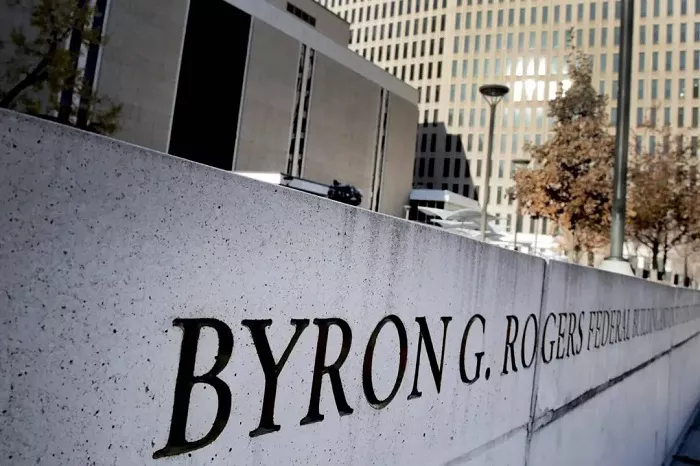In a striking shift in enforcement policy, Immigration and Customs Enforcement (ICE) detained a family attending a scheduled check-in at Denver Immigration Court on Thursday morning. The incident, witnessed by immigration advocates, signals an aggressive approach that critics warn could undermine trust in the immigration court system across Colorado.
The detained family—a mother, father, and their young child—appeared at the downtown Denver court and were granted a dismissal of removal order, a legal reprieve allowing them to remain in the U.S. pending further proceedings, said Emily Brock, an attorney with the Rocky Mountain Immigrant Advocacy Network who was present at the scene.
However, shortly after the court session, ICE agents, communicating in Spanish, instructed the family to accompany them. Brock requested four minutes to advise the family of their rights but was denied. In response, she loudly informed them of their rights in Spanish.
“The look on that child’s face… it just doesn’t feel right,” Brock recounted.
According to Brock, the family was to be transferred to a family detention center, all of which are currently located out of state. Further details about the family, including their country of origin, were not immediately available.
Detaining individuals at immigration court marks an emerging and controversial enforcement tactic for ICE. Similar incidents have recently occurred in states such as Nevada, Arizona, and New York, reflecting a broader national escalation in immigration enforcement.
Immigration advocates describe a troubling pattern: individuals or families who have been in the U.S. less than two years appear in court, only to have their cases abruptly terminated by the government. After receiving what seems like a temporary reprieve inside the courtroom, they are detained immediately upon exiting.
This practice effectively bypasses the traditional, lengthy asylum process, which includes due process and credible fear interviews, by placing individuals into expedited removal proceedings that conclude within hours.
An ICE spokesperson for Colorado did not immediately respond to inquiries about whether the Denver detention represents a formal shift in enforcement strategy.
Jordan Garcia, program director for the American Friends Service Committee’s Colorado Immigrant Rights Program, warned that such enforcement actions risk pushing immigrants who seek to comply with legal processes further into the shadows.
“People are doing everything right to follow the law,” Garcia said. “And yet they’re still getting picked up. That’s deeply troubling.”
Inside the courthouse, court sessions continued without interruption following the early morning detention around 8 a.m.
Historically, previous administrations, including the first term of President Trump, avoided conducting immigration enforcement at courthouses and other sensitive locations such as hospitals and schools, aiming to preserve these as safe spaces for undocumented individuals.
However, on Inauguration Day, President Trump rescinded this policy, permitting ICE agents to conduct enforcement at courthouses. Colorado state law prohibits immigration detentions in or near state courthouses, creating a legal conflict.
Earlier this year, ICE agents were stationed outside the courthouse in downtown Glenwood Springs, monitoring dockets and detaining individuals attending criminal court. This led the chief judge of Colorado’s 9th Judicial District to issue an order demanding that ICE cease these operations, citing the state’s protections.
The recent Denver detention highlights ongoing tensions between federal immigration enforcement efforts and state-level protections, underscoring the evolving and contentious landscape of immigration policy in the United States.
Related topics:
- Germany Moves to Tighten Immigration and Asylum Rules
- Trump’s Immigration Crackdown Alarms Cuban Exiles in Florida
- Immigration Department to Increase Passport and Visa Fees Starting September


